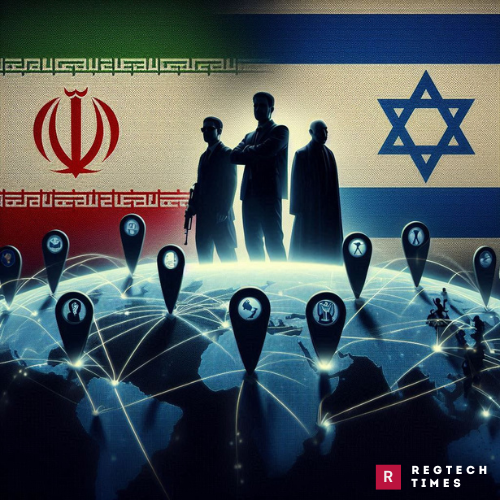In a dramatic revelation, Iran’s Intelligence Minister Esmail Khatib, has announced that Iran’s intelligence services have identified and neutralized Mossad spies operating in 28 countries. This claim highlights the escalating animosity between Iran and Israel and sheds light on the broader geopolitical tensions exacerbated by recent conflicts, particularly in Gaza.
Iran’s Assertion: Mossad Spies Uncovered
According to Iran’s official statements and reports from independent news channels like Iran International, the Iranian Intelligence Ministry has uncovered dozens of Mossad spies and terrorists linked to Israel’s intelligence agency. These operatives are allegedly active in various nations across Asia, Africa, and Europe. The Iranian government asserts that these Mossad spies were involved in espionage activities aimed at undermining Iranian security and interests.
Khatib’s announcement, made during a parliamentary session, suggests that Iran’s intelligence agencies have made significant strides in countering what they perceive as hostile actions by Israel. The Iranian government claims that its operations have led to the detention and prosecution of several Mossad spies within its borders, particularly in Tehran. These allegations reflect Iran’s ongoing struggle with espionage and its commitment to combating what it views as foreign interference.
US Sanctions Hit Houthi and Hezbollah Networks
Context of Tensions
The timing of this announcement is crucial. The claim about Mossad spies comes amid heightened tensions between Iran and Israel, particularly concerning the ongoing conflict in Gaza. Iran has accused Israel of plotting to undermine or attack its government, and such accusations have intensified the antagonistic rhetoric between the two nations. The revelation about Mossad spies can be seen as part of this broader geopolitical conflict, where both countries are engaged in a complex game of intelligence, propaganda, and military maneuvers.
Ismail Haniyeh Assassinated: Hamas Blames Israeli Strike for Leader’s Death in Tehran
Implications of Identifying Mossad Spies
Iran’s assertion regarding Mossad spies has several implications. First, it highlights the intensity of the intelligence battle between Iran and Israel. The Mossad, known for its extensive and sophisticated intelligence operations, plays a crucial role in the region’s intelligence dynamics. Iran’s claim of having identified Mossad spies in multiple countries suggests that the Iranian intelligence services are actively working to counter and neutralize perceived threats from Israel.
Second, the revelation serves as a political statement. By publicizing these claims, Iran aims to demonstrate its vigilance and capability in defending itself against external threats. This can bolster domestic support for the government, portraying it as a defender of national security against foreign adversaries.
Critical Perspectives
While the claims about Mossad spies are significant, they should be viewed with caution. Governments often use intelligence disclosures as a means of advancing their strategic interests, shaping public perception, and influencing international relations. Iran’s statements about Mossad spies could be part of a broader strategy to assert itself on the global stage, especially in light of its ongoing conflicts and diplomatic challenges.
Moreover, the nature of intelligence operations often involves secrecy and disinformation. The accuracy of Iran’s claims cannot be independently verified, and such statements should be considered within the context of the broader geopolitical narrative.
Broader Context
The announcement regarding Mossad spies comes at a time when the Middle East is experiencing significant unrest, with the Gaza conflict drawing international attention and involvement. Israel’s role in the region, its intelligence operations, and its interactions with neighboring countries like Iran are central to understanding the current geopolitical climate.
US Sanctions Tzav 9 for Blocking Gaza Aid Convoys
Iran’s intelligence claims about Mossad spies not only reflect its current security concerns but also its ongoing rivalry with Israel. This rivalry is marked by frequent exchanges of accusations and counterclaims, contributing to a tense and volatile regional atmosphere.
Iran’s claim of having identified Mossad spies in 28 countries adds another layer to the complex and contentious relationship between Iran and Israel. As both nations navigate their geopolitical strategies, these intelligence revelations highlight the intricate nature of their interactions and the broader implications for regional and international stability. While these claims offer insights into the ongoing intelligence battle, they also emphasize the need for cautious analysis of information coming from highly polarized and strategically motivated sources.


